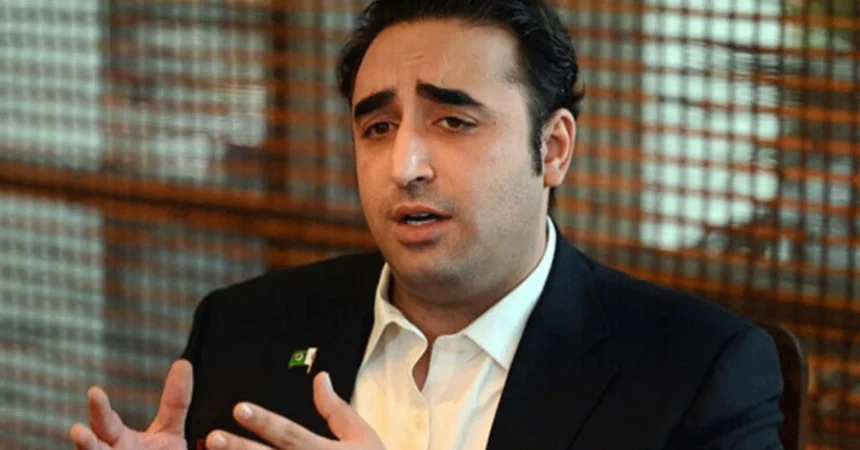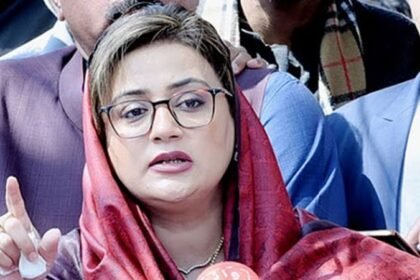In a critical statement that has stirred political and legal discourse in Pakistan, Pakistan People’s Party (PPP) Chairman Bilawal Bhutto Zardari suggested that major constitutional amendments could be passed before the retirement of Chief Justice of Pakistan (CJP) Qazi Faez Isa. This statement, delivered in the context of ongoing political maneuvering, reflects the delicate balance of power between Pakistan’s judiciary and political system.
Bilawal Bhutto’s remarks have prompted speculation about the nature and scope of these constitutional changes, as well as their potential impact on the country’s governance structure. With Chief Justice Isa set to retire in 2024, the political climate is charged with anticipation over whether these amendments could reshape Pakistan’s judiciary and influence how the country’s legal and political framework evolves post-retirement.
The Timing of the Proposed Amendments
Bilawal Bhutto’s statement comes at a pivotal moment for Pakistan’s political landscape. Chief Justice Qazi Faez Isa, known for his independent judicial outlook and often controversial rulings, has been a prominent figure in the country’s judicial scene. His leadership of the Supreme Court has coincided with a period of significant political instability, with frequent clashes between the judiciary and the government.
Given this backdrop, Bhutto’s timing is noteworthy. Chief Justice Isa’s retirement will mark the end of an era, and any amendments to the Constitution during his tenure could influence the legal infrastructure for years to come. The timing raises questions about whether the amendments are being rushed to take advantage of the current judiciary or if they are aimed at ensuring smoother political transitions under future judicial leadership.
Bilawal’s Broader Vision for Constitutional Reform
Bilawal Bhutto Zardari has long advocated for reforms that address the structural issues within Pakistan’s political system. As a scion of the Bhutto family, which has played an instrumental role in shaping Pakistan’s political history, he is no stranger to constitutional battles and legal struggles. His remarks suggest that the PPP is keen to advance changes that might strengthen democratic processes or solidify the balance of powers between various state institutions.
One potential area of focus for these amendments could be judicial reforms that limit the power of the judiciary in political affairs. Pakistan’s judiciary, especially under Chief Justice Isa, has often been seen as overstepping into the political domain. There has been growing tension between the judiciary and the executive, with accusations that the courts have taken an overly activist approach in deciding matters that should fall within the purview of elected officials.
On the other hand, Bhutto’s reforms might aim to increase transparency and accountability within the judiciary. Recent years have seen heightened scrutiny of judicial appointments and rulings, leading to calls for reforms that enhance the independence and integrity of the courts. Bilawal’s PPP has historically supported a strong, independent judiciary, though it has also clashed with the courts during periods of political turbulence, particularly during the tenure of former Prime Minister Benazir Bhutto, Bilawal’s mother.
CJP Isa’s Legacy and Potential Impact of Amendments
Chief Justice Qazi Faez Isa’s judicial legacy is marked by his independence and willingness to challenge the status quo. He has often ruled in cases involving powerful political figures and institutions, earning both praise and criticism. His tenure has seen landmark judgments that have shaped Pakistan’s legal and political landscape, with a focus on upholding the rule of law and constitutional supremacy.
Isa’s rulings have also often put him at odds with the government, especially regarding issues of accountability, human rights, and the autonomy of state institutions. His handling of politically sensitive cases has made him a symbol of judicial independence, but it has also fueled tensions with the executive branch.
If constitutional amendments are passed before his retirement, they could significantly alter the landscape he has sought to shape. For instance, changes to the judicial appointment process, limits on the judiciary’s role in political matters, or adjustments to the powers of the courts could have lasting effects on Pakistan’s legal system.
In particular, any amendments that curtail judicial activism could be viewed as a direct response to Chief Justice Isa’s leadership. This would have profound implications for future chief justices, limiting their ability to intervene in political affairs and perhaps leading to a more restrained judiciary. On the other hand, reforms aimed at increasing judicial independence and ensuring transparency in judicial appointments could be seen as a continuation of Isa’s legacy, safeguarding the judiciary from political influence.
The Role of Parliament and Political Consensus
The passage of constitutional amendments in Pakistan requires a two-thirds majority in both houses of Parliament. This means that any proposed changes will need broad political consensus, not just from the ruling coalition but also from opposition parties. Given the fractured state of Pakistan’s political landscape, building such consensus is no small feat.
Bilawal Bhutto Zardari’s PPP, though a major political force, would need to garner support from other parties, including the Pakistan Muslim League-Nawaz (PML-N) and even potentially factions of the ruling Pakistan Tehreek-e-Insaf (PTI). The dynamics of these negotiations will be crucial in determining whether the amendments are passed before CJP Isa’s retirement.
It’s worth noting that constitutional amendments, especially those that impact the judiciary, are highly sensitive. Any perception that the amendments are aimed at weakening the judiciary or consolidating political power could provoke significant backlash, both domestically and internationally. Civil society groups, lawyers’ associations, and international watchdogs will be closely watching the process, ensuring that any changes are in line with democratic norms and the rule of law.
The Judiciary and Executive: A History of Tension
The relationship between Pakistan’s judiciary and executive has long been fraught with tension. Throughout the country’s history, there have been periods of judicial overreach, where the courts have actively intervened in political matters, as well as instances where the judiciary has been seen as a tool of the government.
One of the most notable examples of judicial activism came during the tenure of Chief Justice Iftikhar Muhammad Chaudhry, who led the Supreme Court in striking down government actions and even disqualifying a sitting prime minister. Chaudhry’s legacy continues to shape the judiciary’s relationship with the executive, with many arguing that the courts have become overly involved in political affairs.
Chief Justice Qazi Faez Isa’s tenure has continued this trend to some extent, though he has also sought to strengthen the judiciary’s independence from political influence. His rulings in cases involving corruption, accountability, and the autonomy of state institutions have often brought him into conflict with the government. As a result, any amendments passed before his retirement could be seen as an attempt to resolve these tensions and define the judiciary’s role more clearly.
Constitutional Amendments: Key Areas of Focus
While the specifics of the proposed constitutional amendments remain unclear, there are several key areas where changes could be made.
- Judicial Appointments:
One potential area of reform is the process of judicial appointments. Currently, the Judicial Commission of Pakistan plays a central role in appointing judges, but there have been calls to reform this process to ensure greater transparency and reduce political influence. Amendments could aim to strengthen the independence of the judiciary by establishing clearer criteria for appointments and reducing the role of political actors in the selection process. - Judicial Review Powers:
Another potential focus of reform could be the judiciary’s power of judicial review. The Supreme Court currently has the authority to strike down laws and executive actions that it deems unconstitutional, but there are concerns that this power has been used too frequently and in ways that encroach on the executive’s domain. Amendments could seek to limit the scope of judicial review, ensuring that the courts focus on legal rather than political matters. - Separation of Powers:
The balance of powers between the executive, legislature, and judiciary is a perennial issue in Pakistan. Amendments could clarify the roles of each branch of government, ensuring that the judiciary does not overstep its boundaries while also protecting it from political interference. - Accountability and Corruption:
Pakistan’s judiciary has played a central role in holding political figures accountable for corruption, but this has also led to accusations of judicial overreach. Amendments could seek to establish clearer guidelines for how the courts handle cases of political corruption, ensuring that accountability mechanisms are fair and impartial.
#BilawalBhutto #ConstitutionalAmendments #JudicialReforms #CJPIsa #PakistanPolitics #PPP #Judiciary #Parliament #SeparationOfPowers #RuleOfLaw #Pakistan #JudicialIndependence #PoliticalConsensus #LegalReforms #ChiefJustice #PakistaniLaw







